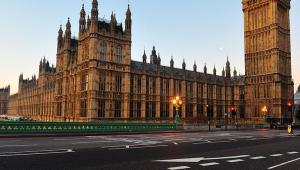31 January 2003
The IFS Green Budget – which examines the chancellor's options in his April Budget – predicts a public sector net borrowing requirement of £28bn by 2005/06, compared with the £19bn forecast by the Treasury. This will leave a 'black hole' to be filled by taxing more, or spending less.
The November 2002 Pre-Budget Report conceded that short-term borrowing will have to rise by more than previously thought. However, the chancellor's assumption was that the public finances would bounce back over the medium term.
'We're not so sure about that,' said institute director Robert Chote. 'We believe the public finances will be weaker than the PBR suggested. Although there is room for some flexibility, the chancellor can't wait too long to tackle the deficit without undermining the credibility of his own fiscal rules.'
Spending cuts would 'sit oddly' with the government's objective of sustained improvements to public services, said the IFS's Carl Emmerson. This leaves the likelihood of annual tax increases of between £4bn and £11bn by the time of the next Spending Review.
Emmerson told Public Finance that any beneficial impact of increased public spending on government revenues will be 'fortuitous rather than planned.'
Nor does the IFS think the use of off-balance sheet private finance initiative investment has a significant effect on government borrowing requirements. In 2002/03 only 10.3% of public investment was financed by the private sector.
The IFS also predicts a closer alignment of the income tax and national insurance systems to raise 'significant extra revenue'.
PFjan2003




















